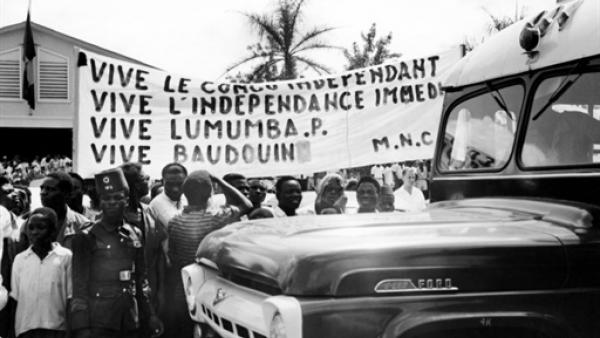Congo Freedom, epilogue: the legacy of independence
#CongoFreedom (epilogue) by Vladimir Cagnolari
1960-2020. Sixty years on from their hard-fought independence, the Congolese – much like other citizens of respective African countries – were revisiting their history. Amongst them were the artists, who chose to explore their reflection through music. Let’s take a closer look at what the songs of Jupiter and Baloji’s have to teach us today.

When Lumumba was assassinated in 1961, the Congo became Zaïre under Mobutu’s authoritarian rule, dominating the country for over thirty years. In that time, there were a number of positive developments, and its music, played by the big orchestras, conquered the whole of Africa. PAM regularly takes the opportunity to revisit this golden era.
But when the economic crisis of the 1980s hit the continent, all of a sudden it became clear that the country stood on feet made of clay. In the late 1990s, it collapsed, torn apart by repeated war and rebellion. Up until today, the country has still not entirely finished dealing with that period. In 2010, when the DRC celebrated, like many other countries in Africa, the 50th anniversary of its independence, it allowed for a time to take stock of its history, and finally to reflect on its future. Some chose to do it with music, and these are the artists that feature at the end of our playlist.Jupiter Bokondji, a leading dissident figure of Kinshasa’s Lemba municipality, had lived for some time in Berlin at a time when the wall was still standing. It was there that the fate of Africa was to be decided in 1885, when Europe’s great powers met to take their slice of the “African cake” and to distribute it amongst themselves. The city, then divided by a wall, embodied the fate of a post-independence Africa, caught up in the glaciers of the Cold War, between the USSR and the United States of America, each with their own allies and informants. Jupiter speaks of his early years in Berlin in “The World Is My Land”, a track from his first international album, Hotel Univers. The same record features the song “Congo”.
The song opens with a sample from the famous Lumumba speech of June 30th 1960, and ends with this reflection:
“In colonial times, our ancestors were slaves, whipped three times a day. However, they would still eat three times a day. Then our parents gained independence… supposedly, they shaped the country so it mirrored their true culture. But 50 years on, Congolese people eat just once a day, at 10 p.m.
My brothers, I wonder: is it the fault of the whites, or that of our parents?
Are we independent or dependent? It all depends… History will be our judge… History will be our judge.”
Born in Lumbumbashi and raised in Belgium, Baloji Tshiani had already mentioned in his first album, Hôtel Impala, the horrors of which the Congo were drowning in. In a long song, he expressed the difficulties that the east of the country was coping with, a land where wars dragged on, as well as exploitation in the mines.
In 2010, he revisited Kabasélé’s famous “Indépendance Cha-Cha” in his own way.
This was both an acute observation – recalling the absence of justice and the embezzlement of public funds – and a message of hope. Speaking of the song, Baloji tells us:
“I covered this rallying song, a symbol of our inexperienced beginnings, between independence and armistice. I did it so that our democracies can progress and learn from their early mistakes, as my country is still an emerging continent, built in just 50 years.”